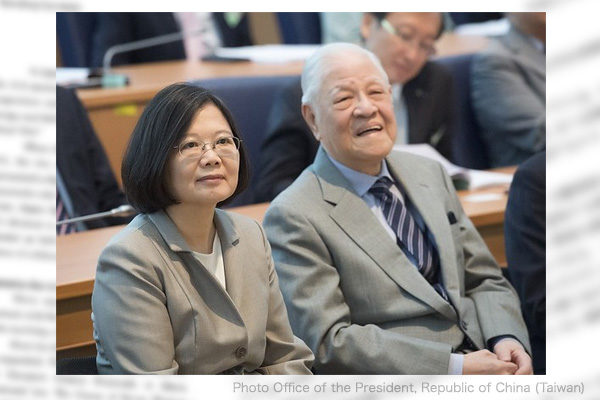Learning of Lee Tenghui’s passing,
I kneel on the floor with a deep bow.
Thank you so much.
I have no more words.
Official apology for 2/28 incident
I clearly remember a scene. On February 28, 1995, Lee Tenghui, then Taiwanese President and Chairman of the ruling Chinese Nationalist Party known as Kuomintang, offered an official apology to victims in the 2/28 incident and their families at a ceremony in Taipei New Park to mark the completion of a monument for the incident, as reported in a television news program.
In the incident on February 28, 1947, mainlander Taiwanese, mostly military and paramilitary officers who fled from mainland China to Taiwan after being defeated in the Chinese Civil War, violently suppressed anti-government protesters of native-born Taiwanese. Lee’s apology became the first step toward resolving the conflict between mainlander and native-born Taiwanese that had deeply eroded the Taiwanese society for a long time.
After the 2/28 incident, Taiwan was placed under martial law for as long as 38 years, with native-born Taiwanese left without basic rights under the oppressive Kuomintang regime. As Taiwan continued economic development even under martial law, however, the middle class emerged even among native-born Taiwanese to stimulate demand for appropriate rights.
Chiang Chingkuo, who replaced his father Chiang Kaishek as supreme leader, had a proper political sense and accepted the fact. He then promoted Lee Tenghui, an elite native-born Taiwanese. Lee boldly and skillfully stepped into the power center, steadily proceeded with the preparations for democratization and headed for the formal apology for the 2/28 incident as Taiwanese president and, above all, as Kuomintang chairman to resolve the conflict between mainlander and native-born Taiwanese, which was the largest obstacle to the democratization. When seeing the apology scene on a DVD, I shed slight tears.
Chiang Chingkuo believed that the Chinese Nationalist Party could not remain in power in Taiwan unless it transforms into a Taiwanese Nationalist Party. Then, he chose elite native-born Taiwanese Lee Tenghui, creating a turning point in the modern Taiwanese political history. Lee secured the turning point.
Special country-to-country relationship
I remember another scene regarding Lee Tenghui. In an interview with a German public broadcaster on July 9, 1999, Lee said that the cross-strait relationship represented a country-to-country relationship, or at least a special country-to-country relationship rather than any internal relationship within “one China” between a legitimate government and a rebel group or a central government and a local government.
The remark indicated a clear intention to break away from a fiction that “the Republic of China” is the legitimate government of whole China and introduce democracy into Taiwan. In other words, he intended to abolish the prescription of the Chinese Communist Party as a rebel group, limit Taiwan’s sovereignty on Taiwan Island and isolated islands such as Chinmen and Matsu and introduce democracy into this limited area.
Democratic Progressive Party leader Tsai Ingwen, who won a landslide victory in a Taiwanese presidential election early this year, has concluded that “the Republic of China is Taiwan,” making a step forward from what Lee termed “the Republic of China in Taiwan.” Taiwan thus has come closer to a country without the Republic of China adjective. Lee Tenghui’s long political life is bearing fruit.
Toshio Watanabe is a director of the Japan Institute for National Fundamentals and Executive Adviser for Academic Affairs at Takushoku University.


